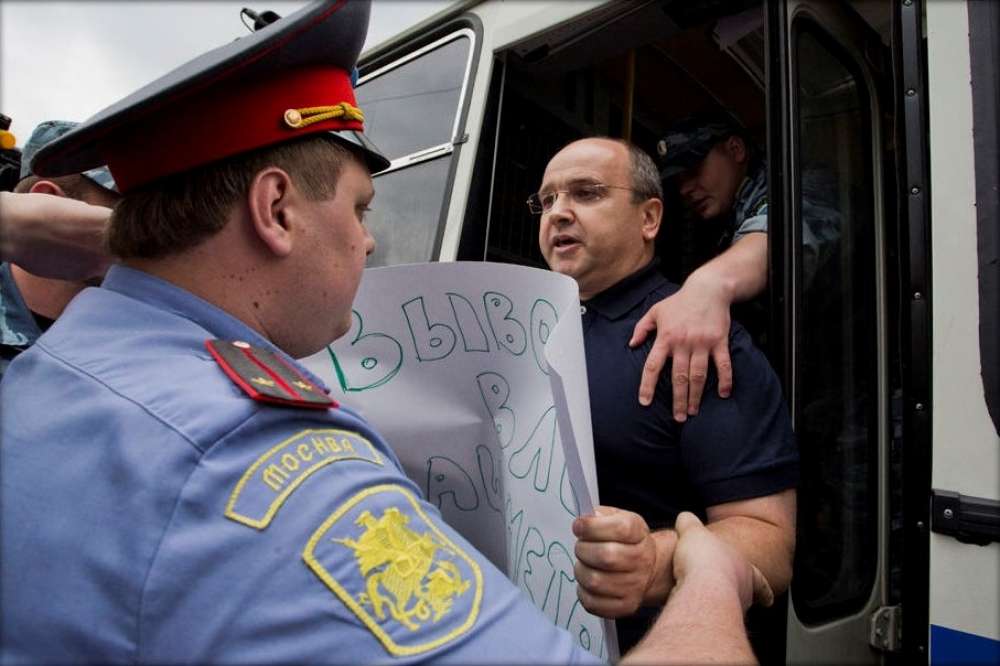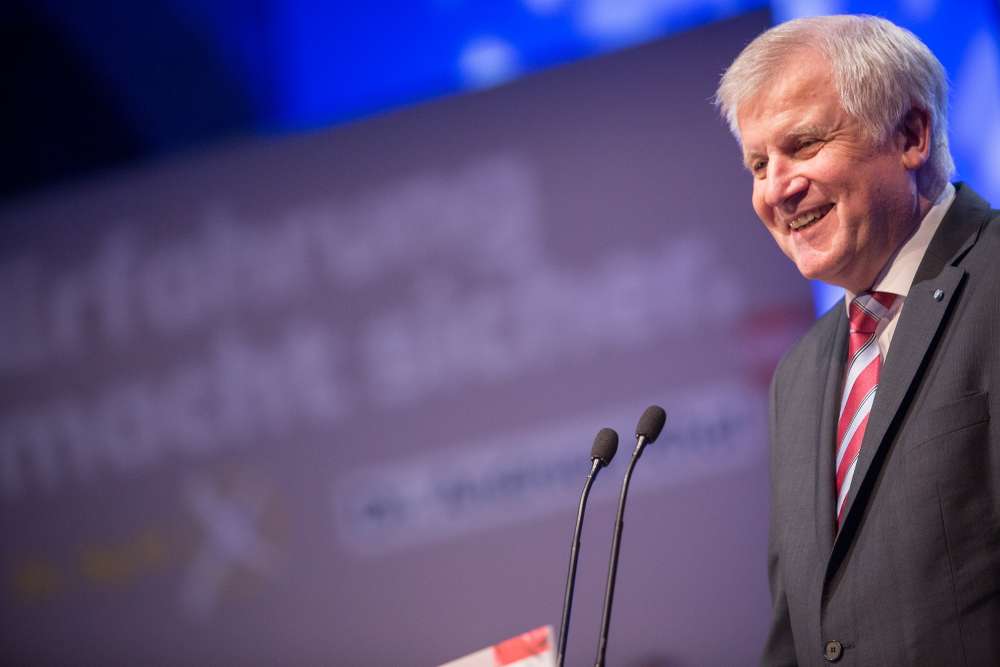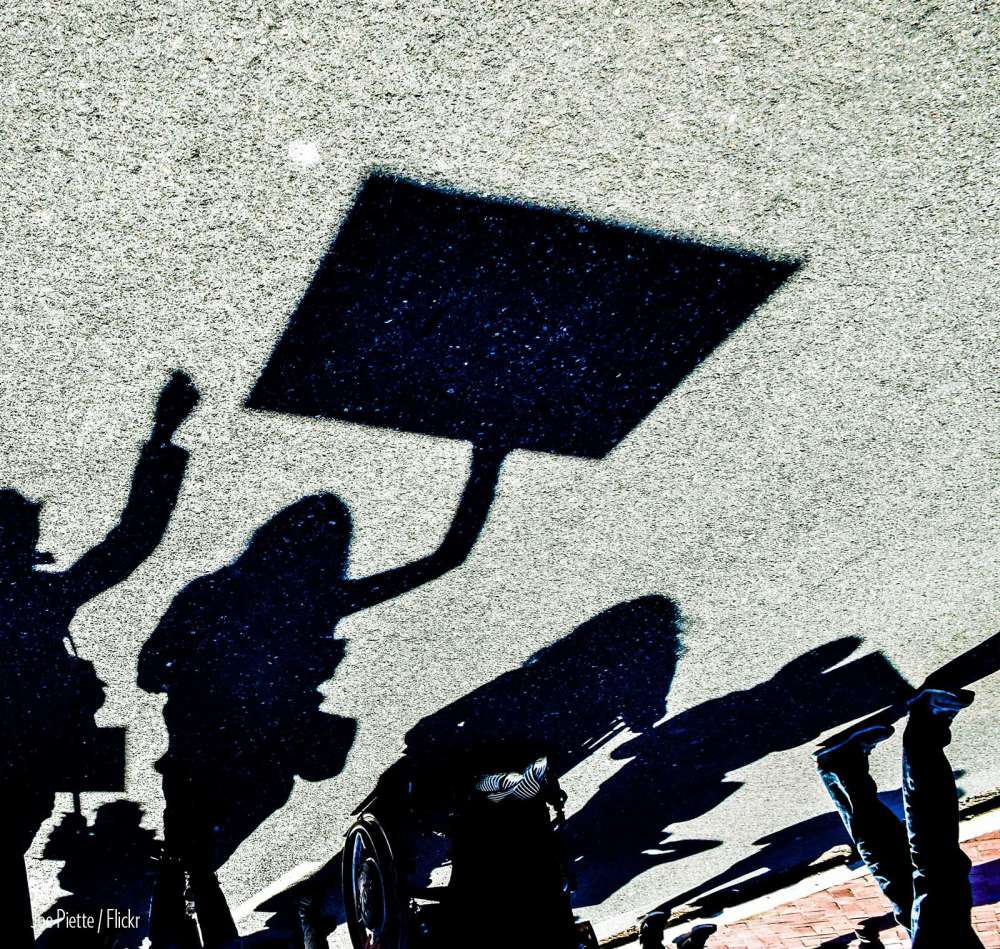Without Democracy, No Human Rights and No Peace

This spring, the German Federal Cabinet will approve new guidelines for managing crises and conflicts. As with any other German foreign policy document, the guidelines will acknowledge the universality of human rights, as well as the importance of human rights to sustainable peace. These are well-intentioned sentiments, but without clearly defined goals and concrete steps, they will have little impact on peacebuilding in practice because the liberal peace project is in a crisis.
The Liberal Peace Project is in a Crisis
In the past years, the human rights movement has been hit by new restrictive laws and far-reaching surveillance technologies, while opponents of human rights – from authoritarian states to illiberal elites, mass organizations, and profiteers of human rights abuses – have gained fresh impetus. The Arab Spring, which fed hopes for peaceful change far beyond the Arab region, ended in bloody conflict. Authoritarian regimes systematically undermine not only the UN human rights system in Geneva, but also the human rights work implemented by UN peacekeeping missions. The International Criminal Court struggles with withdrawals. America’s reputation for playing a pioneering role in international human rights protection was seriously damaged by the torture policy of the Bush administration, and with the election of Donald Trump, was lost entirely. The European Union is no normative power but rather an introverted tragedy. And no rising power has stepped up to fill the leadership gap on human rights.
In this situation, general statements on the links between peace and human rights, or on the balancing of values and interests in German foreign policy, are not enough, as they give little orientation for political practice. The new guidelines must explain more clearly how German peacebuilding efforts conceptualize the relationship between human rights and peace, determine whether democracy assistance should be a component of German peacebuilding policy, and detail the concrete steps Germany will take to protect human rights.
Acknowledge Dilemmas and Trade-Offs Between Crisis Prevention and Human Rights Protection
The new guidelines should first recognize not only where the goals of crisis prevention and human rights protection converge, but also where they diverge. Undisputedly, the biggest threat for the realization of human rights is war. Moreover, empirical evidence shows that the right to physical integrity is badly protected in transition countries, and comparatively better protected in stable democracies and stable autocracies (although more so in the former). Political scientists call it the ‘MMM-Phenomenon’: More Murder in the Middle. A crisis management policy that focuses on stabilization at the expense of democratization can effectively protect physical integrity rights, but at the same time impede the enhancement of rights protection. A similar tension can be observed in the work of human rights organizations. On the one hand, as Beate Rudolf argued in her contribution to the German PeaceLab debate, the work of human rights organizations gives us a better understanding of the underlying causes of violent conflicts, their current condition, and their potential for escalation. On the other hand, human rights organizations exert pressure for change on existing power structures, which also has a destabilizing effect.
Expanding Contacts with Local Human Rights Defenders
To gain up-to-date information, German embassies should stay in close contact with local human rights defenders. Relying on reports of international NGOs is not sufficient because – unlike embassies – they usually do not have a permanent on-site presence. Rather, German diplomats can and should monitor the human rights situation on their own. To do so competently and systematically, they should receive training on how to identify reliable human rights defenders, and how to contact them without exposing them to additional surveillance and intimidation risks.
What is more, Germany should implement the EU’s Guidelines on Human Rights Defenders. In doing so, German embassies must cooperate closely with EU-delegations and other European embassies, for example to coordinate trial attendance in criminal proceedings against human rights activists. However, the outsourcing of human rights protection to the European External Action Service should be avoided because it typically results in weaker, not stronger, European human rights engagement. The liberal peace crisis will not be overcome if Germany and other European countries wait for the EU to fix it.
While expanding contacts with local human rights defenders, German peacebuilding efforts should not put too much stock in human rights organizations. Specialized as they are in documentation and educational work, these are mostly small organizations; they are not able to prevent an escalation of violence, nor can they ensure an orderly, peaceful transition of power. In crisis situations, politically organized actors and mass organizations are critical. Thus, for effective peacebuilding, Germany must do as much to promote democratic political parties as it does to promote NGOs.
Accepting Democracy Assistance as a Critical Challenge
After identifying the trade-offs between stabilization and human rights promotion, Germany’s new guidelines should make clear that human rights protection inevitably requires democratization. History teaches us that individual rights, societal and inter-state peace are best protected by democracies. Germany should hold onto this insight. Peacebuilding efforts that promote stabilization at the expense of democracy are a welcome gift for dictators. To prevent an inadvertent consolidation of authoritarian rule, it is not enough to garnish stabilization measures with projects to support civil society. For example, earmarking a minimum of 30 percent of peacebuilding resources for civil society projects would miss the key point. A better approach would be a commitment to discuss, prior to approval, every stabilization project that the German government considers funding with members of existing parties and influential civil society actors in the country concerned. Such consultation should focus on priorities for funding but also on any unintended effects, both negative and positive, that the projects could produce. Of course, in a crisis it is not always realistic to implement comprehensive consultations during the conception phase of stabilization projects. That is why it is all the more important to facilitate participatory impact monitoring throughout the projects’ implementation. Even in places where no democracy exists, Germany can and should act in a democratic spirit.
Unfortunately, there is disagreement on whether or not the new guidelines should commit the German government to democracy assistance. For instance, Roderich Kiesewetter has argued that Germany should dedicate all its peacebuilding resources to stabilization, and has called for new guidelines that shift Germany away from the democracy export paradigm. Of course, Kiesewetter is right: democracy cannot be exported. A new political order – in which the people are the masters of peaceful power transitions, the monopoly of force is under civil control, and both individual as well as minority rights are respected, protected and promoted – is typically attained through struggle and against considerable resistance of all those in power. But democracy assistance and democracy export are not the same. The latter may be bound to fail, but the former remains viable. Without democracy, sustainable peace and comprehensive human rights protection are not possible.
At the very least, German embassies should closely monitor transformation dynamics, identifying non-governmental democracy activists, democratically-oriented party leaders and where applicable, liberal government members. German diplomats should meet with these actors regularly to understand their goals, analyze their strengths and weaknesses, and assess the plausibility of their theories of change. This is classic embassy work. The new guidelines should also identify and address new challenges for democracy assistance in times of authoritarian resurgence, technological innovation and international terrorism.
Stand With Democratic Actors
Currently, there is significant uncertainty as to the viability of democracy assistance in practice. We have learned that the persistence of fragile statehood, authoritarian regimes and corrupt governments is many times greater than the democratization impact of external support. Democracy assistance will not bring about change immediately and often requires strategic patience. But this must not lead to inaction. To strengthen German peacebuilding practice, we should direct the discussion away from the chimera of democracy export, and instead find an answer to the question: What can and what will Germany do in crisis affected countries when pro-democratic actors ask for support?
To prepare for a principled, yet realistic response to such requests:
- The guidelines should create certainty about Germany’s peacebuilding goals and identify human rights promotion as well as democracy assistance as core elements.
- German embassies should develop country-specific human rights goals that are more focused than the fairly broad EU human rights strategies, paying special attention to civil and political rights critical to democratization.
- Diplomatic personnel must be made available in sufficient numbers, and trained to build relationships with human rights defenders and pro-democratic actors.
- Ambassadors should be incentivized – not punished – for well-calculated risk-taking, as risks are an inherent part of a peace policy that promotes human rights and democracy.
- Institutional learning in German human rights foreign policy should be strengthened through regular evaluations. In particular, tactical innovation should be promoted: as opponents of human rights have improved their defense, human rights promotion must keep pace.
- In light of restrictive laws and unprecedented surveillance technology, financial management requirements must be revised, introducing more flexible provisions for the disbursement of funds and scaling back the comprehensiveness of narrative reports and number of financial audits. In today’s environment, human rights and democracy assistance can only be implemented if local partners are given a fair amount of decision-making authority, thereby increasing the importance of carefully selecting project partners.
Ultimately, local democracy activists and human rights defenders should decide whether external support is desirable at all. For them, the threat of being stigmatized as foreign agents is real, even when they receive no support from abroad. The ability to make such difficult decisions and calculate risks is a prerequisite for working in repressive contexts, and the new guidelines must equip German peacebuilders to meet this challenge.
…
This is an English translation of a commentary originally published in German on PeaceLab2016 blog on January 12, 2017.







